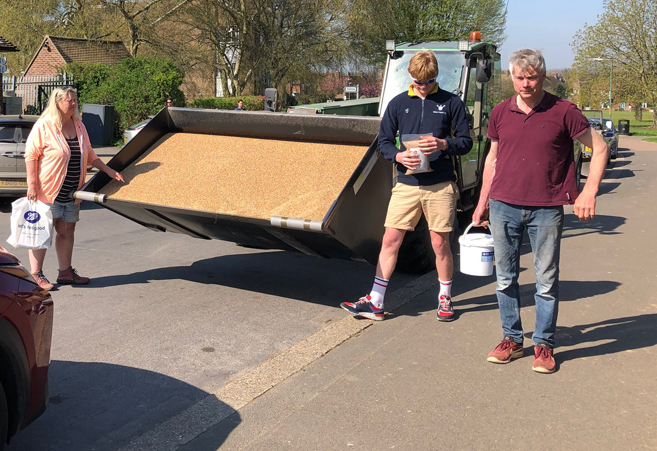Community: Giving something back
The Covid-19 outbreak has highlighted the vital role that farms and estates can play in their local and wider communities. James Thompson, Head of Consultancy at Knight Frank, offers a personal perspective
3 minutes to read
I am lucky enough to live in Wye, Kent, where there was a strong sense of community among the local landowners and farmers even before the virus struck.
A great example is the Wye Community Farm project run by Richard Boden that was formed following the closure of the agricultural college here 12 or so years ago.
In addition to occupying part of the Wye National Nature Reserve, 15 landowners provide land rent free – often unproductive, smaller fields that are inconvenient to manage – for the farm, which grazes a small herd of rare-breed cattle and a flock of 60 ewes.
The project creates local food for local people and has a strong educational component involving school children and even the probation service. Those supplying the land benefit because it is kept in good order, and many prefer it to the other option which is letting it out as pony paddocks.

Since the advent of the crisis, however, a large number of local food and farming businesses, including Perry Court Farm and Bank Farm have become even more involved with helping to keep the community, in particular the elderly and vulnerable, fed.
For my part, I’ve distributed milling wheat from our family farm to residents to make their own bread. We were pleasantly surprised that a major newspaper even noticed our efforts. The headline was: The Kentish village fighting Covid with kindness.
Community is one of our Five Cs and my experience shows how rewarding it can be on a personal level. But at a time when the future of farming and food security in the UK is uncertain due to Brexit, building closer links to your local community and helping them appreciate the quality of local food can only make sense.
I know from my colleagues that what I’ve seen in Wye has been replicated across the country. The two case studies on these pages typify some of the efforts and creative thinking from farmers and estate owners.
Read full article
Case study: CoVeg
The images of empty supermarket shelves that dominated the media at the beginning of the Covid-19 crisis have spurred another pandemic – a surge in people wanting to ‘grow their own’ to combat future food shortages.
For Cambridgeshire farmer David Walston, it was the nudge he needed to put a community-gardening plan – CoVeg – he’d been mulling over for a while into action.
Mr Walston created two 1,000 square-metre plots on his 2,220-acre farm and invited local villagers to get involved.
Over 140 people from five surrounding villages signed up to the scheme, which sees the plots tended communally rather than divided into the separate areas you find on conventional allotments. Mr Walston provides ongoing help with his machinery when required.
Other local companies like Kings Seeds have got involved and three other local farmers are also considering donating some of their land.
"The benefits of bringing people back onto the land, when otherwise their lives have been put on hold, will be huge – this can be a time to reconnect with where our food comes from, and how it is grown."
_David Walston, Founder of CoVeg, May 2020